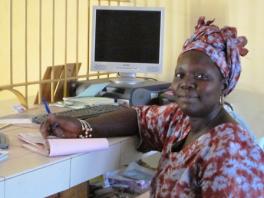 In a recent article on The Guardian’s Poverty Matters Blog, Claire Provost addresses some of the history and criticisms of microfinance in a review of a new book by David Roodman called Due Diligence: An Impertinent Inquiry Into Microfinance.
In a recent article on The Guardian’s Poverty Matters Blog, Claire Provost addresses some of the history and criticisms of microfinance in a review of a new book by David Roodman called Due Diligence: An Impertinent Inquiry Into Microfinance.
What both Provost and Roodman seem to gloss over is that many organizations, such as The Hunger Project, operate with the understanding that microfinance alone will not end poverty. People participating in microfinance programs need access to other services – such as education and health care – from other development actors to complement microfinance products. Our own microfinance program is one component of an integrated rural development strategy known as the Epicenter Strategy that encourages active local government involvement. This holistic approach ensures that community members have access to many basic services, not just financial ones.
The article suggests that development organizations involved in microfinance simply give money to the poor. THP believes an effective program is built on local ownership. By improving the capacity and skills of communities to manage their own basic financial institutions locally, products and services are much more likely to be demand-driven and sustainable, not hand outs.
Another criticism highlighted references to studies that find microfinance is not proven effective at “lifting people out of poverty” in terms of their absolute incomes. However, there is a counter argument that it does help them smooth their income and therefore improve their own welfare. This smoothing can be an important outcome of savings products, of which THP is a major proponent.
THP’s microfinance program consistently demonstrates a positive impact on members’ lives. Participants report that children are in school in partner communities, nutritious food is eaten more regularly, and there is improved access to medicine and health care. Microfinance, when implemented strategically and holistically, can effectively contribute to the elimination of hunger and poverty.
